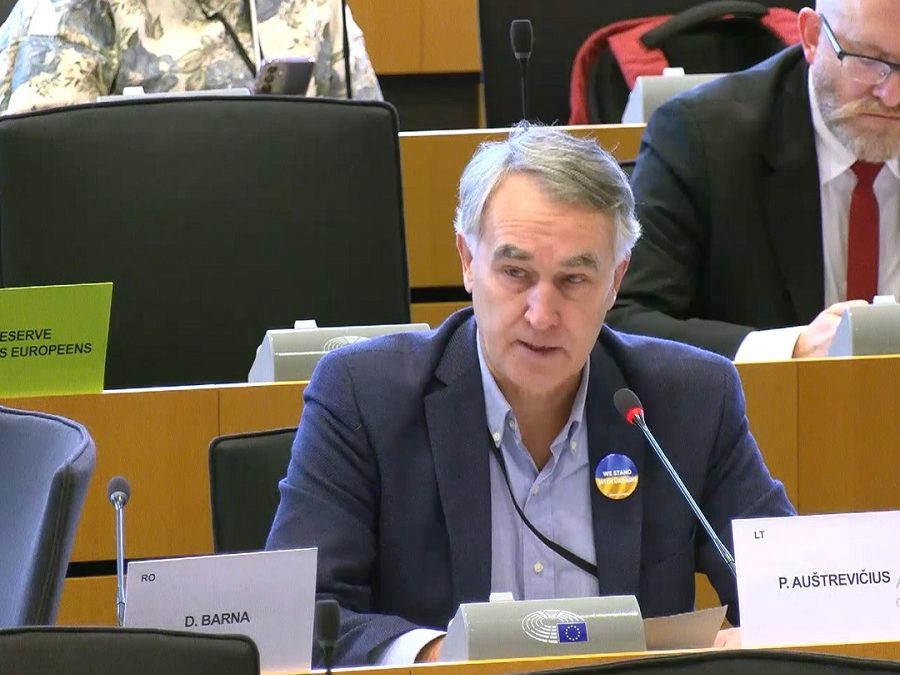Brussels – The unresolved bilateral issues between EU member states and non-member countries should be resolved bilaterally and must not be used as leverage to block the accession process of candidate countries for membership, states the Draft Report on the EU’s Enlargement Strategy of the European Parliament, which emphasizes that some of the countries aspiring to join the bloc have had candidate status for membership for years.
– Enlargement is one of the strongest tools of the EU in foreign policy and geopolitics and remains a key driver of long-term security, peace, stability, and prosperity in Europe based on shared democratic values, representing a historic opportunity with significant socio-economic, political, and security advantages for both the EU and the countries involved in the enlargement process, the Report highlights.
During today’s presentation of the document before the Committee on Foreign Affairs (AFET) of the European Parliament, the rapporteur, Lithuanian MEP Petras Auštrevičius, stated that the EU must have a strategy for enlargement, not just a one-off plan, and that it must not allow this process to be held hostage by any member state, as it is about uniting Europe and bringing Europeans closer together.
– I see Europeanization as an inevitable platform to which European countries can contribute, benefit from, and live together in the long term, said Auštrevičius.
According to him, enlargement is particularly important in the context of Russian aggression against Ukraine and Russia’s attempts to create divisions in Europe and exert influence over certain European countries, making them weaker and “dependent on the Russian Empire.”
Auštrevičius emphasized that candidate countries for membership undergo a process of transformation, adaptation, and comprehensive reforms on their path to the EU, and the progress of each should be assessed based on individual merits.
On the other hand, according to the Lithuanian liberal MEP, the EU must maintain the functionality of the accession process, and therefore must move towards decision-making by qualified majority and do so in a timely and transparent manner.
– The countries involved in enlargement are not a buffer zone for the EU; they are future members of our common Union and need practical adaptability, individual integration, and structural financial support. I firmly believe that every candidate country dedicated to membership, through reforms and our support, can achieve its goal and become a full member of our community, added Auštrevičius. (November 20, 2025)
 go to the original language article
go to the original language article
